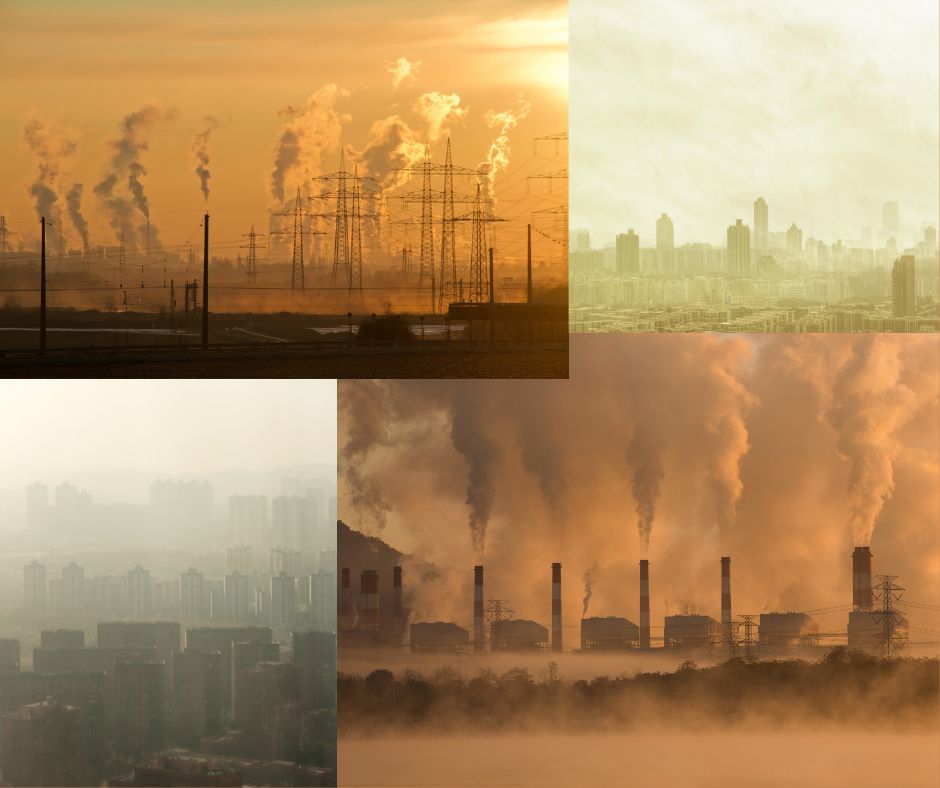
Source: AUN News
Even in a scenario with low emissions, there would likely be more wildfires and related air pollution, according to WMO Secretary-General Petteri Taalas.
Air pollutants falling from the atmosphere to the Earth’s surface will also influence ecosystems and harm human health.
Indicative of what is to come
The annual WMO Air Quality and Climate Bulletin warned that hundreds of millions of people would pay a “climate penalty” due to the interaction between pollution and climate change.
The Bulletin analyses various potential air quality outcomes under high and low greenhouse gas emission scenarios in addition to reporting on the current condition of air quality and its strong connections to climate change.
Heatwaves this year have been made worse by last year’s wildfire smoke.
Mr Taalas mentioned the heatwaves in China and Europe in 2022, saying that the stable high atmospheric conditions, sunlight, and slow wind speeds are “conducive to high pollution levels.”
“We anticipate a further increase in the frequency, severity, and duration of heatwaves, which might result in even poorer air quality, a phenomenon known as the “climate penalty,” making this a preview of the future.
The term “climate penalty” relates to how climate change affects people’s ability to breathe.
Air contaminants
Roughly one-quarter of the world’s population lives in the area with the most significant projected climate penalty, primarily Asia.
Climate change might worsen ozone pollution, which would harm hundreds of millions of people’s health.
One will undoubtedly result in changes in the other because air quality and climate are interdependent.
According to the Bulletin, burning fossil fuels also releases nitrogen oxide, which can combine with sunlight to create ozone and nitrate aerosols.
These air contaminants can then harm ecosystem health, including the availability of clean water, biodiversity, and carbon storage.
In the future
The Sixth Assessment Report of the Intergovernmental Panel on Climate Change (IPCC) offers predictions for how air quality may change as temperatures rise throughout this century.
Surface ozone levels are anticipated to grow in highly polluted places, particularly in Asia, if greenhouse gas emissions continue to be high and the world’s temperature rises by 3° C from preindustrial levels by the second half of the 21st century.
This includes a 20% increase in Pakistan, northern India, and Bangladesh and a 10% increase in eastern China.
Fossil fuel emissions will increase ozone, which will most likely result in heat waves. Heatwaves will then intensify air pollution.
As a result, it is anticipated that the air quality will continue to deteriorate during the heat waves that are growing more frequently due to climate change.
Carbon-free scenario
The IPCC offers a low-carbon emissions scenario to prevent this, resulting in a modest, brief increase before temperature drops.
Reduced nitrogen and sulphur compounds from the atmosphere to the Earth’s surface, where they might harm ecosystems, would also be beneficial in a world that adopts this scenario.
Worldwide, WMO stations would monitor how ecosystem health and air quality responded to suggested future emission reductions.
The effectiveness of the initiatives intended to slow climate change and enhance air quality could be measured in this way.
Analysis by: Advocacy Unified Network
